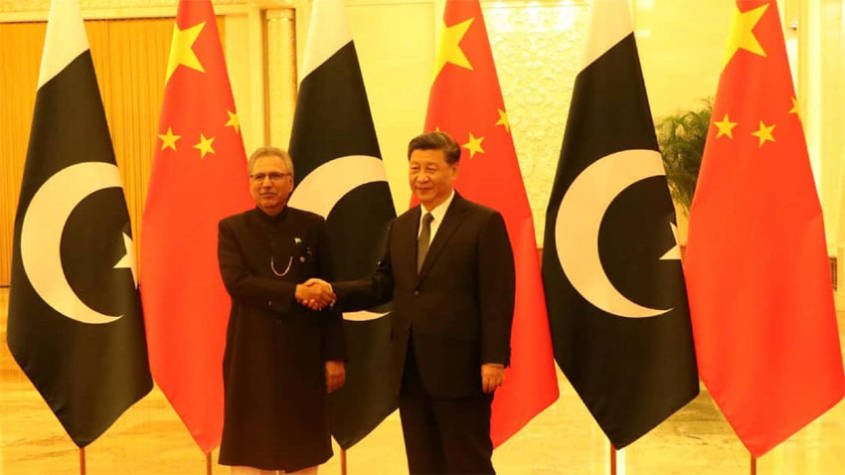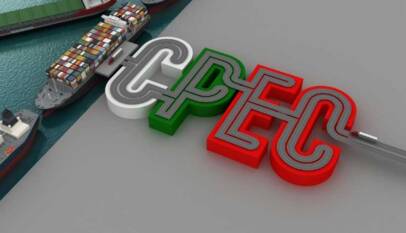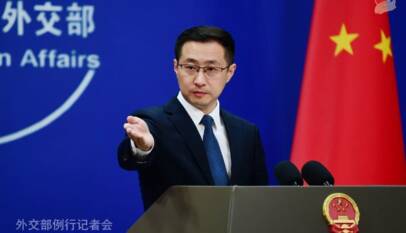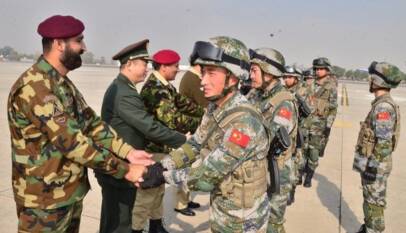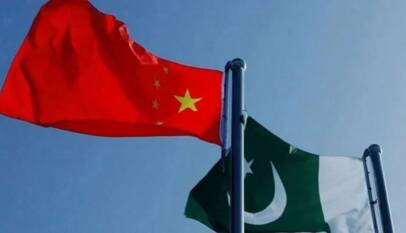Pak-China bilateral consensus on CPEC and international issues is notable: Chinese media
Pak-China time tested bilateral ties and unflinching support through thick and thin is remarkable. Chinese media noted that Pakistan’s President Arif Alvi’s recent visit to China during difficult time of epidemic outbreak demonstrated strength of bilateral relationship and consensus range of issues including their commitment to the execution of CPEC.
BEIJING: In the epic fight against “Covid-19 terror” offering the world new standards of resilience on the footsteps of China spirit, momentous meeting between President Arif Alvi and Chinese President Xi Jinping have benchmarked “Iron-Clad Friendship”, allowing both Pakistan and China to make everyone sit up and take notice on regional and international landscape.
The friendship is based on mutual trust, bilateral respect, equal-footed cooperation, cognizance on international issues especially new Afghan peace deal, Kashmir problem and deepest understanding on CPEC, signature project of Belt and Road Initiative (BRI), according to an article published by China Economic Net.
Formal get-together came at a time when both countries needed most each other on national and international issues. President Arif Alvi, who paid his first ever visit to China since Pakistan Tehreek-e-Inasaaf government came to power in 2018, met Chinese President Xi in a crucial occasion when China registered an extraordinary victory against coronavirus in Wuhan, the epic center of Covid-19.
In China, hundreds of people died; daily tally was on rise. However, China spirit, leadership will, national resolve and health SOPs nixed reign of terror. Now Wuhan once was worst-hit city came clean with zero registration of new coronavirus case.
President Arif Alvi’s presence on the victory time cheered up Chinese leadership as well as all and sundry. No one but Pakistan was first country which cozied up Iron Friend in her jubilation.
When China had been struggling to make it through, Pakistan lent its help by dispatching medical supplies to China. The Pakistani government allocated 300,000 medical masks, 800 hazmat suits and 6,800 pairs of gloves from the stocks of public hospitals around the nation and transported the aid to China.
The Hunza region in Gilgit-Baltistan, Pakistan donated 7,000 surgical masks to China. Zhang Heqing, cultural counselor of the Chinese embassy in Pakistan, as well as director of the China Cultural Center in Pakistan, accepted the donation and met the 12-person delegation headed by leaders of the Development Committee of the Overseas Chinese Association in Pakistan.
Zhang expressed gratitude for the donation made by people in Hunza on behalf of Yao Jing, Chinese ambassador to Pakistan. Later Pakistan sent its military aircraft to China to deliver pandemic control materials.
The materials included medical protective suits, face masks and goggles.
Around 300,000 tablets of Resochin (chloroquine phosphate) – an effective treatment for Covid-19 – from one of Bayer’s subsidiaries in Pakistan were transported to China.
Pakistan’s National Assembly also passed a resolution to express solidarity with China over its battle against the outbreak. According to the resolution, the National Assembly appreciates the dedicated efforts and efficient policies made by the Chinese government and people in the anti-epidemic fight.
“As China fights outbreak, Pakistan has stood firmly by us, maintaining flights and pooling medical supplies all over the country to help China.
We are deeply grateful and touched by such trust and confidence,” said Chinese Foreign Ministry Spokesperson Hua Chunying few weeks back during the ‘Online’ briefing held in Beijing, applauding Pakistan’s friendliness.
Showcasing true essence of “A friend indeed is friend in need”, China joined hands of Pakistan to hash out Covid-19 SOPs in the beginning. Chinese government also sent 12,000 kits to Pakistan for the detection of the coronavirus in the country.
Economic Affairs Minister Hammad Azhar expressed gratitude to China and said that the ally had provided “grant assistance of USD 4 million along with 300,000 medical face masks, 10 ventilators, and other equipment”.
It merits mentioning that although China is busy to cope with Covid-19, it has rushed to rescue Pakistan from locust crisis. The first batch of China’s emergency aid arrived in Karachi, including 50,000 liters of malathion and 14 air-powered high-efficiency remote sprayers.
Chinese Consul General Li Bijian said that under the plan Beijing would provide these control materials to the Pakistani government for free. Chinese experts had come to Pakistan and visited Sindh, Balochistan and Punjab from February 23 to March 4 to assess the damage caused by the locust swarm.
Pakistan Foreign Office spokesperson said that as the number of confirmed cases of Covid-19 keep growing in Pakistan, China will help build the capacity to address the challenges posed by coronavirus in Pakistan. In this regard, ‘letters of exchange’ were signed between the two countries during the recently concluded visit of President Arif Alvi to Beijing.
President Arif Alvi’s first visit to China let the world keep a close eye on Pak-China ties and future friendship trajectory. President Xi Jinping, Premier Li Keqiang and Chairman of the NPC Standing Committee Li Zhanshu held talks and meetings with President Alvi respectively, on which readouts were released.
These meetings were to demonstrate Pakistan’s support and confidence for Chinese friends, to show the international community the notable progress China has made in fighting the epidemic, and to showcase China’s positive contribution to global public health security.
Second, this visit demonstrates the fine tradition of mutual assistance between Pakistan and China. Right after the epidemic breakout, Pakistan mobilized the whole nation to provide assistance to China, which we will never forget.
Third, this visit has deepened strategic mutual trust and consolidated practical cooperation between Pakistan and China.
The two leaders exchanged in-depth views on the experience of epidemic prevention and control, coordination of epidemic response and socio-economic development, response to external economic and financial risks and deepening of major cooperation including the CPEC.
The two sides also signed an MOU on the establishment of working groups specialized in science and technology as well as agriculture under the CPEC Joint Cooperation Committee, and agreed to expand cooperation in related areas under the CPEC framework.
A series of strategic consensuses reached during this visit will surely further deepen Pakistan-China all-round cooperation.
Although the visit is short in duration, it is paid at a special timing and of great significance, and has effectively enhanced Pakistan-China traditional friendship and mutually beneficial cooperation.
In the course of jointly tackling Covid-19 and the plague of locusts, Pakistan and China have stood together and helped each other and there’s a lot to tell about such friendship.
It is this friendship deeply cherished in our heart that provides the most solid foundation for Pakistan-China relations and sets an example for the building of a community with a shared future for mankind.
It is believed that tested by the epidemics and other disasters, the iron-clad friendship between Pakistan and China will grow stronger and deeper, which will inject even stronger impetus into the all-weather strategic cooperative partnership between the two countries.
CPEC’s Success Story: $25 Billion Invested Across 38 Completed Projects
ISLAMABAD: A total of 38 projects worth over $25 billion have been completed and 23 develo…



